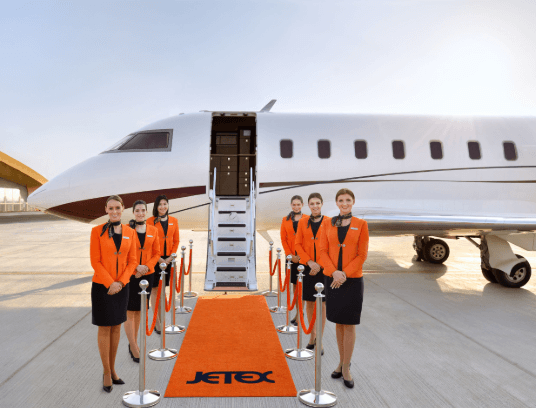Exploring the Environmental Benefits of Modern Private Jets

Introduction
Private jets have always been seen as luxury and exclusive, but they have also been associated with a harmful environmental impact.
Today, however, the private jet world is changing due to innovations in aviation technology that transform private jets into much greener machines.
Moreover, modern designs, sustainable materials, and fuel efficiency are the primary goals of today’s private jets.
Manufacturers and operators are also adopting practices that align with global sustainability goals. With modern private jets, the choice is greener than ever.
Let’s take a closer look at the key environmental benefits of modern private jets and what this might mean for the future of sustainable aviation.
1. Better Fuel Efficiency
Modern private jets are specially designed using advanced aerodynamics and lightweight materials, dramatically improving fuel efficiency. Moreover, new-generation engines burn less fuel per mile but provide better performance.
For instance, turbofan and ultra-efficient jet engine development cuts fuel burn by as much as 20% compared to earlier versions.
Such technologies not only save money in running costs but also cut down on greenhouse gas emissions.
Additionally, most modern jets feature technologies such as winglets, which cut drag and enhance fuel efficiency even further. By burning less fuel, these aircraft are part of a more sustainable aviation industry, demonstrating that luxury travel can indeed go hand in hand with environmental responsibility.
Furthermore, better engine performance means fewer stops to refuel, lowering the environmental impact of each trip and making the operation more efficient.
2. Sustainable Aviation Fuel (SAF)
One of the more impactful changes in the current aviation industry is the shift toward Sustainable Aviation Fuel (SAF).
SAF is made from renewable resources like algae, agricultural waste, or even cooking oil. The carbon emissions in the entire lifecycle of these fuels stand to be as much as 80% less compared to the usual jet fuel.
Moreover, due to its environmental impact, SAF is becoming a default for many private jet owners. Aircraft manufacturers are also working with fuel producers to increase the availability and affordability of SAF.
This shift toward renewable energy sources highlights the industry’s commitment to combating climate change and meeting global carbon reduction targets.
Furthermore, investments in innovation for SAF are promoting its adoption across the entire aviation industry, ensuring it is scalable for both commercial and private aviation in the future.
3. Reduced Noise Pollution
Modern private jets boast quieter engines and noise-reduction technology, making less of an impact on their surroundings.
Noise pollution is a long-standing concern for both airports and communities in close proximity.
However, modern aircraft have since complied with stringent noise requirements by international aviation standards.
The new designs for more advanced engines, like high-bypass turbofan engines, consume less fuel and operate at a lower decibel level. These innovations benefit passengers and the environment, making travel more sustainable and harmonious.
Additionally, these modern jets address noise pollution, thereby contributing to the overall well-being of communities and ecosystems. Reduced noise levels also make private jets more acceptable in urban areas, which expands airport accessibility and supports efficient operations in noise-sensitive regions.
4. Sustainable Manufacturing Practices
The environmental benefits of modern private jets extend beyond their operation to the manufacturing process itself. Aircraft manufacturers increasingly engage in sustainable practices, such as:
Using recycled materials
Minimizing waste during the manufacturing process
Carbon fiber composites are now extensively used for aircraft construction. Their lightweight and durable properties reduce aircraft weight, which saves fuel consumption. Moreover, producing these materials requires less energy than other materials.
Additionally, companies are introducing more eco-friendly practices, like saving water and turning to factory-based renewable power sources. Such holistic practices further sustainability in private aviation.
Furthermore, modular production is another highly adopted technique that uses fewer resources by reducing emissions from the final assembly process, ultimately lowering the carbon footprint.
5. Carbon Offset Programs
Many private jet operators and manufacturers now offer carbon offset programs. With these offset programs, the passengers can invest in renewable energy projects, reforestation initiatives, or any other projects to help neutralize the emissions generated during a flight.
For example, operators collaborate with firms to raise funds for clean energy or a conservation project. This ensures that the cost of flying the environment is counterbalanced with beneficial contributions to the planet.
Moreover, through these programs, private jet flyers can travel in luxury while contributing to global efforts to combat global warming.
Additionally, most operators provide clients with detailed carbon emission reports, enabling them to make informed decisions. This allows them to take direct action to reduce their environmental impact further.
Conclusion
Modern private jets are redefining the perception of luxury aviation by integrating eco-friendly advancements.
Advances in fuel efficiency, the use of sustainable aviation fuels, noise-reduction technologies, sustainable manufacturing, and carbon offset programs are making private air travel greener every day.
Though much more needs to be achieved, these developments suggest that the industry is on a mission to reduce its environmental footprint.
Moreover, modern private jets blend luxury and responsibility for comfort-conscious and environmentally aware travelers.
As technology continues to evolve, private aviation will definitely play an important role in creating a more sustainable future.




